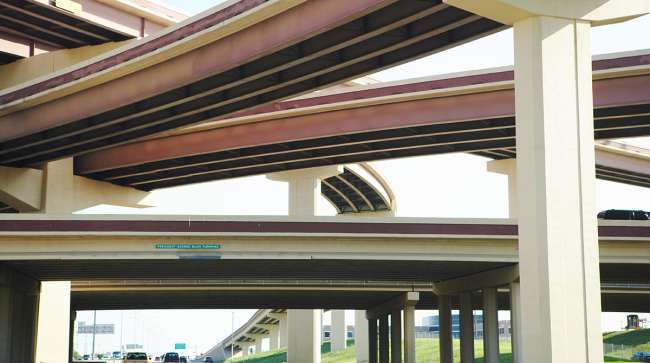Staff Reporter
Industry Comments Support FHWA Proposal on Infrastructure Design Standards

[Stay on top of transportation news: Get TTNews in your inbox.]
Public comments submitted to the Federal Highway Administration regarding a recent proposal that would allow more flexibility with design standards when repairing highways and interstates reflect an overwhelming show of support from industry groups and transportation agencies.
FHWA’s Notice of Proposed Rulemaking, published in the Federal Register on Nov. 24, garnered 18 comments by the end of December. Specifically, the NPRM proposes revision to the design standards and standard specifications that apply to new construction, reconstruction, resurfacing, restoration and rehabilitation projects on the National Highway System. The comments came from an assortment of transportation industry associations and state departments of transportation.
The proposed rule would allow states to undertake resurfacing, restoration and rehabilitation (RRR) projects on all National Highway System roadways, including interstates. Additionally, the proposal would incorporate the latest versions of design standards and standard specifications previously adopted and incorporated by reference, and would remove the outdated versions of these standards and specifications.
Several comments, including those from the departments of transportation of Pennsylvania, Delaware and Washington, expressed appreciation for the flexibility proposed in the NPRM.

In this year in review episode, we discuss COVID and everything from gas tax to remote work. With the help of our special Transport Topics guests, Seth Clevenger and Eleanor Lamb, we’ll also begin to map a plan for 2021. Hear a snippet, above, and get the full program by going to RoadSigns.TTNews.com.
“Allowing states to undertake RRR projects on freeways, including interstate highways, is essential to ensure our nation has a world-class surface transportation network,” the American Society of Civil Engineers’ submission to FHWA states. “Therefore, ASCE supports this proposed rulemaking because it provides civil engineers the flexibility to include performance-based design standards that do not compromise safety or roadway performance.”
Under FHWA’s existing design standards, state departments of transportation are required to meet new construction standards on freeway RRR projects, unless a design exception is approved. In the past, the agency has expressed that the application of standards other than those used for new construction projects might compromise safety and would not be appropriate.
The NPRM noted that, over the years, research has contributed to a better understanding of the relationship between geometric design features and crash frequency and severity. Rather than concentrating solely on meeting dimensional design criteria, this proposed change would allow states to develop RRR projects based on project-specific conditions and roadway-performance metrics.
“These changes will allow engineering firms and their agency clients to focus on context-sensitive solutions and will provide flexibility for exercising professional engineering judgment rather than focusing on prescribed design criteria that may not suit a particular project,” commented Matt Reiffer, vice president of transportation programs at the American Council of Engineering Companies.
NPRM Federal Register by Transport Topics
In a submission to FHWA, Leif Wathne, executive vice president of the American Concrete Pavement Association, stressed the importance of prioritizing cost effectiveness as well as safety.
National Association of Small Trucking Companies President David Owen commented that his organization’s members are impacted by dilapidated roads, which may reduce safety and efficiency. NASTC represents small motor carrier businesses and has more than 13,000 member companies.
“In turn, such lost time, unnecessary delivery delays and unsafe circumstances arising from unimproved roadways or prolonged disruptions from construction sites affect the safety of the driving public, as well as the cost and availability of consumer goods,” Owen said. “Such road construction-related matters cause deleterious ripple effects uninvitedly touching the daily jobs, tasks, work and travel of virtually all American citizens.”
Want more news? Listen to today's daily briefing:
Subscribe: Apple Podcasts | Spotify | Amazon Alexa | Google Assistant | More

